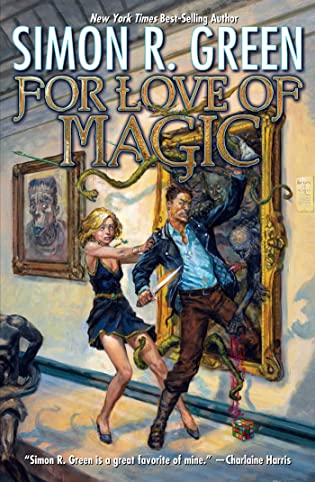 For Love of Magic by Simon R. Green
For Love of Magic by Simon R. Green Format: ebook
Source: purchased from Amazon
Formats available: hardcover, ebook, audiobook
Genres: fantasy, historical fantasy, urban fantasy
Pages: 240
Published by Baen on May 2, 2023
Purchasing Info: Author's Website, Publisher's Website, Amazon, Barnes & Noble, Kobo, Bookshop.org, Better World Books
Goodreads
History isn’t what you think it is. It’s been rewritten to remove all the magic. Together, two people decide to put things right. A new novel of magic, history and true love from Simon R. Green.
When they fall in love, it’s magic!
History can change and has changed. Magic was and is real.
Once upon a time, there was a forgotten era of magic and monster. But the remnants — and all memory — of the old world have been replaced by the sane, the scientific, and the rational. But sometimes the magical past isn’t content to stay past. That’s where Jack Damian comes in. It’s his joy to protect our present from the supernatural remnants of an earlier time, a different history. It’s his job to make the past safe.
Jack is called to the Tate Museum, where dozens of people have disappeared beneath the surface of a painting. While investigating, he finds himself smitten with a mysterious art expert Amanda Fielding. But Amanda has plans of her own, and soon the two are traveling through time — back to the Roman Empire and then forward through history, from King Arthur’s court to Sherwood Forest. As they explore histories past as written and overwritten, the balance of magic and science shifts, and the choices the two make could change the world forever.
My Review:
The fun of For Love of Magic begins with the title, as there are SO MANY possible interpretations. And all of them are applicable and all of them are fascinating.
In the beginning, Jack Daimon doesn’t love magic. In fact, his job is to eliminate whatever bits of it sneak into our rational, scientific world. But he does fall head over heels in love with Amanda Fielding the moment he meets her – in the middle of closing up an abyss to an extremely nasty and highly magical place. And there’s more magic in that meeting – and in Amanda herself – than initially meets the eye.
Jack Daimon is the Outsider, the one person who exists outside of magic AND the various and sundry organizations and armies that are attempting to stamp it out. His job is to eliminate the chaos of magic whenever it appears.
He’s very, very good at his job. But his job requires that he have an open mind about pretty much everything. The people who don’t believe in magic tend to become gibbering wrecks whenever it appears – which in Jack’s line of work turns out to be frequently and often.
What Jack doesn’t know when we first meet him – and he first meets Amanda – is that magic is dying. Not of natural causes, but by being ruthlessly stamped out by some very mysterious secret masters of the universe who plan to control everything and everyone.
For fun, profit and their own benefit, of course.
Jack is magic’s – and Amanda’s – one last chance to set things right before it’s too late. But first he has to learn a lesson. Or two. Or ten. Whatever it takes to stand up and hold his ground in the face of everything he’s ever believed – and every force that has ever tried to remake the world in its own dry, humdrum, ruthlessly rational and utterly tyrannical image.
There’s supposed to be magic in the world. It’s Jack’s job to stand his ground so that Amanda has the chance to bring it back. If he can. If he decides he should. If he can make up his mind – and his heart.
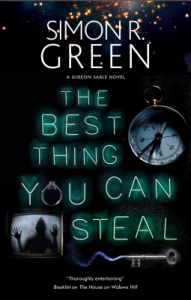 Escape Rating A-: I had a great time with For Love of Magic, but whether you will or not probably depends on how much you like snarky characters with even snarkier commentary – even though this Jack isn’t filled with nearly as much of the snark as some of the author’s previous protagonists.
Escape Rating A-: I had a great time with For Love of Magic, but whether you will or not probably depends on how much you like snarky characters with even snarkier commentary – even though this Jack isn’t filled with nearly as much of the snark as some of the author’s previous protagonists.
Jack isn’t nearly as snarky as Gideon Sable or Eddie Drood, because Jack needs a sense of wonder to make his way through the magical mystery history tour that Amanda takes him on. Her plan is to convince Jack, or use Jack, or a bit of both, to bring the magic back before it – and she – are gone forever.
That’s where the fun of the whole thing comes in, as she takes Jack to the times and places where magic made life, well, magical – before the forces of rational science rewrote history for their own purposes.
She doesn’t work through logic, because that’s the enemy’s strategy. She grabs for the heart, both Jack’s and the reader’s, by going back to times and places that were filled with wonder. She makes this adventure a tour of what rational science has reduced to mythical Britain, and draws Jack to Camelot and Sherwood Forest. Not to show him that magic will make things perfect – because human beings are NOT perfectable. But by showing him that some things are worth fighting for and that one of those things is a world that is not reduced to humanity only.
So she gives him a dream – and she gives it to us too. All the better because it hits a few contemporary issues squarely on the nose – and promptly punches them several times.
Like much of this author’s work, it does borrow a bit from his vast canon, but not in any way that’s overt or requires previous familiarity. Personally, I saw elements of Shadows Fall and Hawk and Fisher, as well as the Nightside. But then I also felt like I was seeing bits of the Iron Druid’s perspective, and Amanda was often referred to by some of the same terms that that series uses for the Morrigan.
By throwing King Arthur and Robin Hood, Boudicca and Gloriana, Frankenstein and Faust, into the mix, it stirs up a heady brew of the possibilities of where magic in the world might take us – if we still have the chance to let it. And that always makes for a fantastic read!

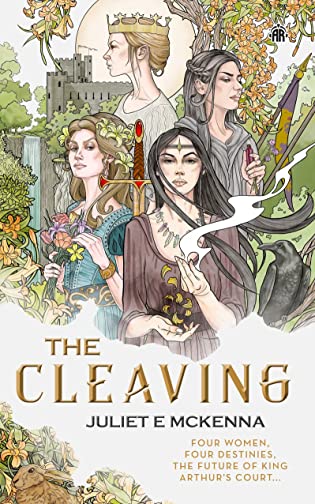 The Cleaving by
The Cleaving by 
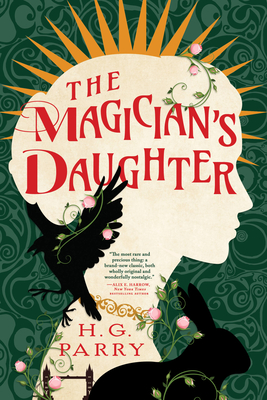 The Magician's Daughter by
The Magician's Daughter by  Babel, Or the Necessity of Violence: An Arcane History of the Oxford Translators' Revolution by
Babel, Or the Necessity of Violence: An Arcane History of the Oxford Translators' Revolution by  In a work of historical fantasy, particularly one that cleaved so close to this period, those evils would be impossible to ignore and no reader should expect them to be ignored. But Babel is fiction, which means I also went into it expecting a story to be told that would captivate me – and in this particular case captivate me every bit as much as the author’s
In a work of historical fantasy, particularly one that cleaved so close to this period, those evils would be impossible to ignore and no reader should expect them to be ignored. But Babel is fiction, which means I also went into it expecting a story to be told that would captivate me – and in this particular case captivate me every bit as much as the author’s 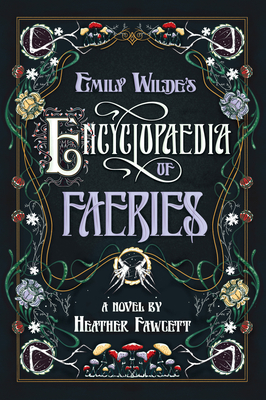 Emily Wilde's Encyclopaedia of Faeries (Emily Wilde, #1) by
Emily Wilde's Encyclopaedia of Faeries (Emily Wilde, #1) by  When the Angels Left the Old Country by
When the Angels Left the Old Country by 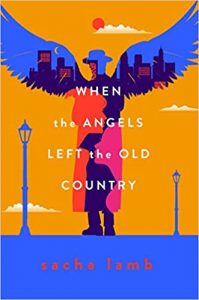 Escape Rating A+: In the foreword, the publisher claims that they’ve been referring to this book as the “queer lovechild of Philip Roth and Sholem Aleichem” – which is a lot to live up to. I think it read as
Escape Rating A+: In the foreword, the publisher claims that they’ve been referring to this book as the “queer lovechild of Philip Roth and Sholem Aleichem” – which is a lot to live up to. I think it read as 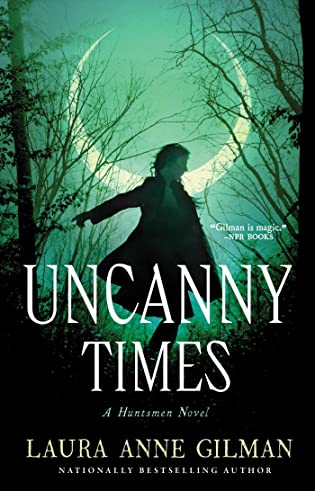 Uncanny Times (Huntsmen #1) by
Uncanny Times (Huntsmen #1) by 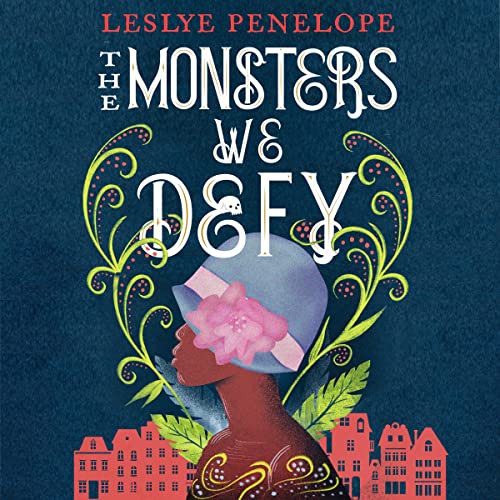 The Monsters We Defy by
The Monsters We Defy by 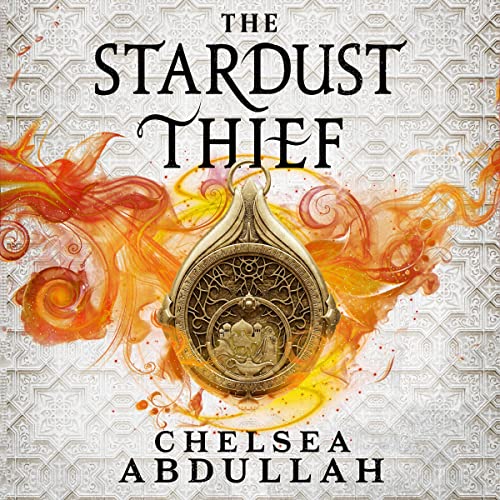 The Stardust Thief by
The Stardust Thief by  But the story is a nearly endless ‘out of the frying pan into the fire’ kind of story, as one near-death adventure – and escaping therefrom – leads directly into another. Much as the tales that Shafia – who we know as Scheherazade – told to the Sultan to keep him from killing her. This adventure is clearly intended to remind readers of
But the story is a nearly endless ‘out of the frying pan into the fire’ kind of story, as one near-death adventure – and escaping therefrom – leads directly into another. Much as the tales that Shafia – who we know as Scheherazade – told to the Sultan to keep him from killing her. This adventure is clearly intended to remind readers of 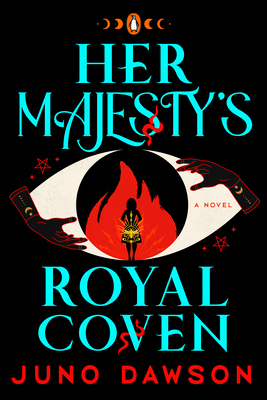 Her Majesty's Royal Coven (Her Majesty's Royal Coven, #1) by
Her Majesty's Royal Coven (Her Majesty's Royal Coven, #1) by